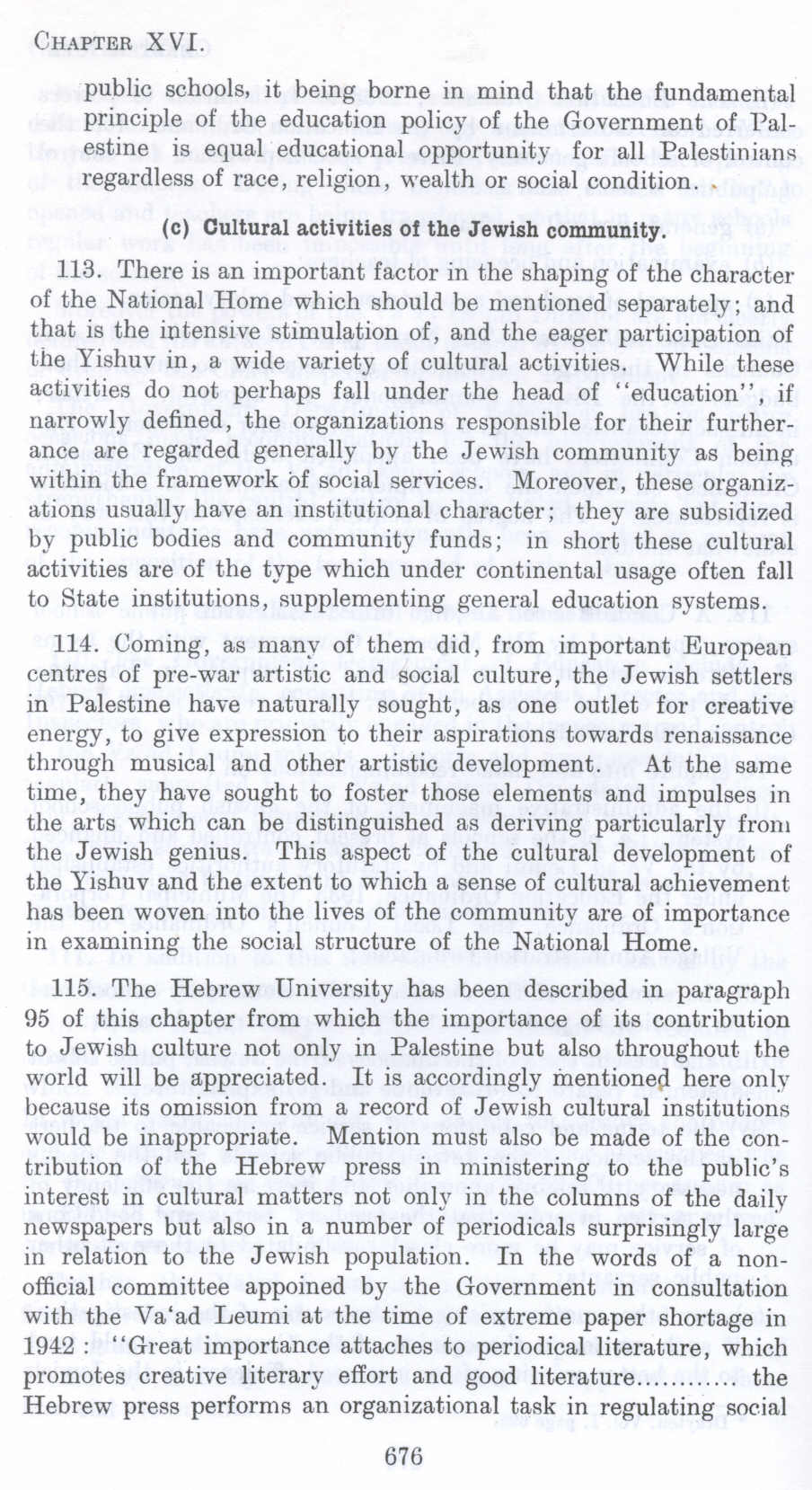| Prev | Next |  |
| Prev | Next |
| PalestineRemembered | About Us | Oral History | العربية | |
| Pictures | Zionist FAQs | Haavara | Maps | |
| Search |
| Camps |
| Districts |
| Acre |
| Baysan |
| Beersheba |
| Bethlehem |
| Gaza |
| Haifa |
| Hebron |
| Jaffa |
| Jericho |
| Jerusalem |
| Jinin |
| Nablus |
| Nazareth |
| Ramallah |
| al-Ramla |
| Safad |
| Tiberias |
| Tulkarm |
| Donate |
| Contact |
| Profile |
| Videos |
British Mandate: A Survey of Palestine: Volume II - Page 676 |
Disclaimer
The above documents, article, interviews, movies, podcasts, or stories reflects solely the research and opinions of its authors. PalestineRemembered.com makes its best effort to validate its contents.


Post Your Comment
*It should be NOTED that your email address won't be shared, and all communications between members will be routed via the website's mail server.
public schools, it being borne in mind that the fundamental principle of the education policy of the Government of Palestine is equal educational opportunity for all Palestinians regardless of race, religion, wealth or social condition.
(c) Cultural activities of the Jewish community.
113. There is an important factor in the shaping of the character of the National Home which should be mentioned separately; and that is the intensive stimulation of, and the eager participation of the Yishuv in, a wide variety of cultural activities. While these activities do not perhaps fall under the head of "education", if narrowly defined, the organizations responsible for their furtherance are regarded generally by the Jewish community as being within the framework bf social services. Moreover, these organizations usually have an institutional character; they are subsidized by public bodies and community funds; in short these cultural activities are of the type which under continental usage often fall to State institutions, supplementing general education systems.
114. Coming, as many of them did, from important European centres of pre-war artistic and social culture, the Jewish settlers in Palestine have naturally sought, as one outlet for creative energy, to give expression to their aspirations towards renaissance through musical and other artistic development. At the same time, they have sought to foster those elements and impulses in the arts which can be distinguished as deriving particularly from the Jewish genius. This aspect of the cultural development of the Yishuv and the extent to which a sense of cultural achievement has been woven into the lives of the community are of importance in examining the social structure of the National Home.
115. The Hebrew University has been described in paragraph 95 of this chapter from which the importance of its contribution to Jewish culture not only in Palestine but also throughout the world will be appreciated. It is accordingly mentioned here only because its omission from a record of Jewish cultural institutions would be inappropriate. Mention must also be made of the contribution of the Hebrew press in ministering to the public's interest in cultural matters not only in the columns of the daily newspapers but also in a number of periodicals surprisingly large in relation to the Jewish population. In the words of a nonofficial committee appointed by the Government in consultation with the Va'ad Leumi at the time of extreme paper shortage in 1942 : "Great importance attaches to periodical literature, which promotes creative literary effort and good literature........ the Hebrew press performs an organizational task in regulating social
676